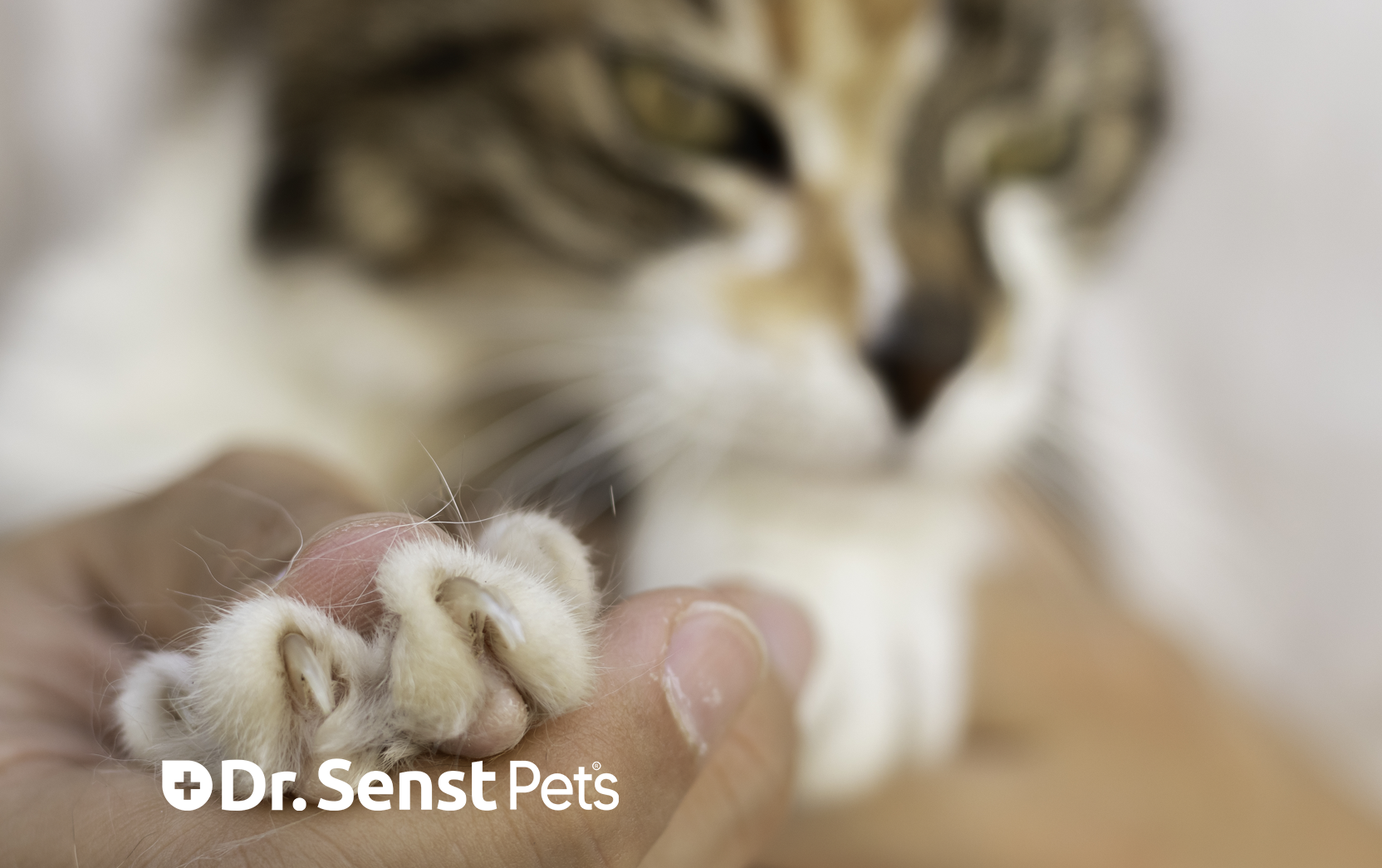
- by Dr.Thilo Senst
The Complete Guide to Cat Itching: Causes and Solutions
- by Dr.Thilo Senst
The Complete Guide to Cat Itching: Causes and Solutions
If your cat seems to be scratching or grooming itself excessively, it may be experiencing a skin issue that leads to discomfort and itching. While occasional scratching is normal, continuous itching, or "cat itching," can indicate underlying problems like allergies, parasites, or infections. In this comprehensive guide, we’ll explore the causes and treatments for cat itching, helping you recognise symptoms, understand potential triggers, and find the best solutions for your furry friend.
Flea Allergy Dermatitis Flea bites are a leading cause of cat itching. For some cats, even a single flea bite can trigger an allergic reaction known as flea allergy dermatitis. This results in intense itching, especially around the tail and back. Studies show that flea bites are one of the most common allergens in cats across the UK.
Food Allergies Cats can develop food allergies, leading to itchy skin. Typical allergens include proteins like beef, dairy, or fish. When a cat’s body reacts to a particular ingredient, it can result in itching, rashes, and digestive issues. [Stat: Approximately 10% of cats are affected by food allergies in the UK.]
Environmental Allergies Cats can also develop sensitivities to their surroundings. Allergens like pollen, dust mites, and mould can all contribute to cat itching. Seasonal changes often exacerbate these environmental allergies, causing heightened itching in spring and autumn.
Fungal and Bacterial Infections Bacterial and fungal infections, such as ringworm, are also culprits behind cat itching. These infections can spread rapidly, especially if your cat lives with other animals. [Stat: Studies from the UK indicate that about 5% of feline dermatology cases involve fungal infections.]
Mites and Other Parasites Ear mites, particularly common in cats, can cause intense itching. Additionally, parasites like lice or sarcoptic mites burrow into a cat’s skin, causing irritation.
Dry Skin Cats are sensitive to changes in humidity, and during the winter months, indoor heating can cause dry skin, leading to itching. Dehydration and lack of dietary omega-3 fatty acids also contribute to dry skin.
Stress-Related Itching Cats often groom themselves as a way to relieve stress. When they are anxious, this grooming can become excessive, leading to skin damage and hair loss.
Excessive grooming and scratching are the primary indicators of cat itching, but there are other signs to watch for:
A vet may take a sample of your cat’s skin or ear discharge to check for parasites, bacteria, or fungi.
If food or environmental allergies are suspected, blood tests or elimination diets can help identify the allergens causing your cat’s itching.
To detect food allergies, a diet elimination trial can be conducted over several weeks. If symptoms improve, ingredients can be reintroduced one at a time to pinpoint the allergen.
Maintaining effective flea control is crucial. Regularly treating your cat and its environment is essential for managing flea allergies. Consider using a combination of products such as flea sprays, powders, and cat-safe collars.
If your cat’s itching stems from food allergies, a hypoallergenic diet can alleviate symptoms. Look for diets with limited ingredients or proteins like duck, venison, or rabbit, which are less likely to cause allergic reactions.
Reducing environmental allergens can significantly help with cat itching. Ensure your home is well-ventilated, and use an air purifier if possible. Regularly clean areas where your cat sleeps, and consider hypoallergenic bedding.
Medicated shampoos can help reduce itching. Look for products that are free from harsh chemicals, as these can further irritate the skin. For immediate relief, a vet-prescribed ointment may be beneficial.
Coconut oil is a natural anti-inflammatory that can be applied topically to soothe your cat’s skin. It’s also safe for ingestion, providing omega fatty acids that can support skin health from the inside out.
Diluting apple cider vinegar with water and spraying it on your cat’s fur can help alleviate itching caused by fungal or bacterial infections. However, avoid using it on open sores, as it may cause stinging.
Adding omega-3 supplements to your cat’s diet, such as fish oil, can improve the health of your cat’s skin and coat. Omega-3s work by reducing inflammation and alleviating dryness.
Aloe vera is soothing and can be applied directly to itchy patches on your cat’s skin. Ensure you’re using pure aloe vera gel without additives, as some ingredients can be toxic to cats.
Regular grooming can significantly reduce cat itching by:
Make grooming sessions comfortable and calm, particularly if your cat already experiences anxiety.
If your cat’s itching persists despite at-home remedies, consult your veterinarian. Persistent itching may indicate a more serious underlying condition requiring medication or a specialised treatment plan.
No, human products can be harmful to cats and should be avoided. Always consult your vet before applying any product to your cat.
Aside from itching, other signs include flea dirt (small black specks) in the fur, particularly around the tail, and visible fleas on the skin.
When it comes to managing cat itching, Dr. Senst offers a range of products designed for safe and effective care. The following products can be helpful:
These products are designed with cat comfort and health in mind, offering practical solutions to various causes of cat itching. As always, consult with your vet to ensure these treatments align with your cat's specific needs.
![]()
Enter your details & download our comprehensive 50+ page printable Dr. Senst Pet Care Planner completley FREE! - keep track of all your pet’s needs, from medical history and training to vet visits, grooming, diet, and more!










Share:
Understanding Cat Anxiety and Litter Box Problems: Causes and Solutions
How Probiotics Aid in Dog Gut Flora Restoration